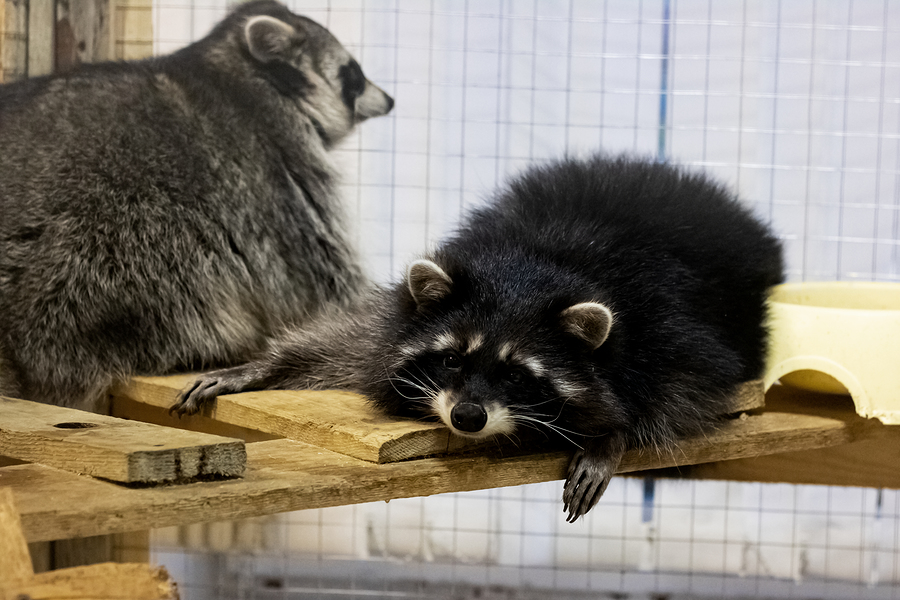If you find a baby raccoon, do not attempt to make a rescue and bring it home as a pet. Instead, the wisest choice you can make is to walk away and let nature take its course. No matter how cute or helpless the pup may appear to be, they are not accustomed to human interaction, and will grow up to exhibit feral behaviors that are dangerous to people and pets. You see, it took tens of thousands of years to accomplish the healthy domestication we have with cats and dogs today. But raccoons are meant to be in the wild and remain undomesticated. Even if you are looking to buy a pet raccoon from a raccoon breeder, you might want to reconsider. Wild or not, raccoons are a massive undertaking and commitment on the part of the owner.
Continue reading to learn the exact reasons why wild raccoon domestication is a bad idea for anyone to attempt.
I might be cute now, but I will grow up to be a BIG PROBLEM.
Massive Amounts of Mess and Destruction
Raccoons are bred to roam free and explore their surroundings because they are extremely curious and intelligent creatures. A raccoon, at a certain age, begins to explore their curiosity even more, making their behavior severely destructive. If a person were to take in a wild raccoon, their home would be subjected to this destructive behavior and play time.
They are incredible climbers with very dexterous paws; this means they can climb counters and railings, as well as open doors, cabinets, and more. A domestic living situation is simply not ideal for raccoons and their natural needs and instincts. On the other end of things, a person could not possibly be able to care for a wild animal of this nature in a healthy and proper way. Altogether, raccoons in the house are a bad idea.
Health and Safety Risks of Pet Raccoons
Aside from property damage and lack of living space, there is another equally agreeable reason why wild raccoons should never be domesticated; the reason is human health and well-being. Raccoons are known carriers of many viral diseases that can be easily spread to adults, children, and other household pets. These viral illnesses include distemper, rabies, hepatitis, and more.
Along with the risk of contracting a viral disease through saliva and blood, there are more ways raccoons can implicate a persons’ health. Raccoon scat is raccoon droppings. These droppings are major carriers of sicknesses like roundworm that can be spread easily as well. There are many ways raccoons can make people sick; another reason why they should never be taken into a home.
Local and State Laws Governing Wildlife Domestication
Another serious reason why people should never try to domesticate a raccoon involves the law. In many states, owning a raccoon is simply against the law. If caught, a person can be liable for large fines, court hearings, and potential loss of pet ownership rights. In other states, a person can own such an animal if they apply and are approved for specific permits and licenses for wild animal ownership. The nest way to know what your state laws are on wild animal domestication is to avoid it altogether.
Central Indiana Raccoon Removal Services You Can Trust
Call 317-535-4605 for prompt and professional Indianapolis raccoon removal services you can trust. We are DNR licensed and experienced raccoon control specialists who only use safe and humane methods to exclude and extract raccoons. We also offer 24 hour emergency service, raccoon cleanup and restoration, inspections, and raccoon-proofing. Call 317-535-4605 to request a free estimate, today.


